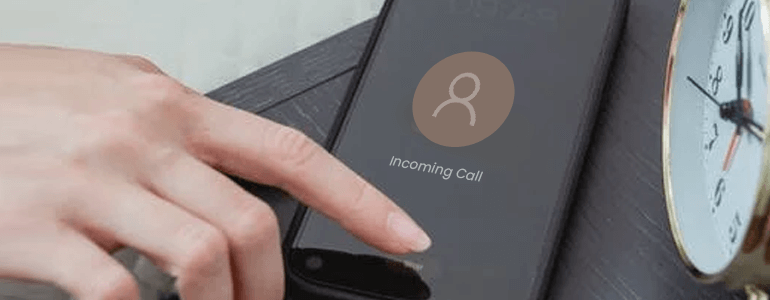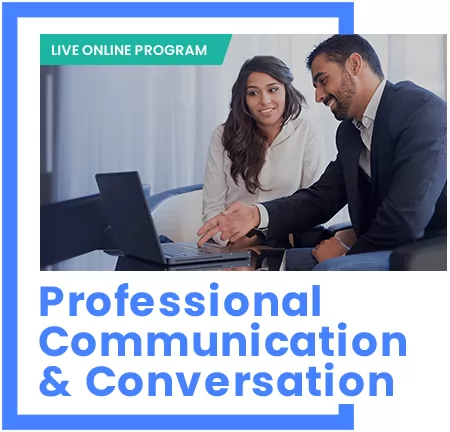

Ashish March 9, 2022 0 Comments
In this digital era, phone conversations play a major role in communicating especially after the pandemic hit. Be it in business firms, corporate organizations, health, academic or social institutions, telephonic conversations play an important part in getting information and imparting it further.
As they say in the business world, “Time is money” phone conversations save time and are convenient to hold. But these calls are crucial and must be handled with utmost care and seriousness. They make or break impressions and it shows respect and cares for the caller that they are heard.
Unlike texting or writing an email is simpler where one can easily edit and ponder and take time to proofread before sending, phone calls are real-time experiences. Other digital technologies can serve the same purpose, but phone calls have a more personal and effective touch. The best part about professional phone calls is that they can be learned and adopted very quickly. Here are a few tips and tricks on how to speak professionally on the phone.

Respecting peoples’ time is a virtue if you want your time to be respected. Answer the call by the third or fourth ring as nobody likes to be kept waiting. It shows that the receiver is efficient and the caller feels important.
Also if you need to go offline for some reason, ask the other person, before putting him/her on hold. It shows that you respect them and his time is valued.
Keep a chain of thought and write down key points in a notepad. The tip for this is to jot down only points/headers and not complete sentences, because then you will know what you need to tell, the conversation will be crisp and it won’t be robotic the way you describe. This is advisable more so to sound professional and direct and not be clueless. This is a great way to avoid awkward pauses too. It is also wise to keep supporting information ready to avoid unnecessary future calls on the same topic.

Everybody wants to speak English to someone pleasant and to sound like that one should exchange pleasantries too. A typical introduction would be to wish and establish who you are by giving your name and company or designation so that the receiver recognizes you instantly.
For example: Good morning/afternoon/evening (make sure you are correct about this too), My name is Sneha and I’m calling from Accenture. May I speak with Mr. Tanmay?
OR
Good morning, Thank you for calling Eastern bookstore. I am Miranda speaking. How can I help you?
Kindness and politeness are not overrated but underused. Overcalls one can’t see the other person but can hear, therefore polite words go a long way. By saying the three magical words- ‘Please, sorry, and thank you’, a humble impression is cast on the person on call. He/ She instantly reciprocate with good vibes and leaves a lasting impact on the organization. They understand that they can call comfortably in the future and motivate the client in a positive manner.

The voice should be clear and the network should have no glitches. This is a major turn off for any business call. Unclear messages and disturbances amidst calls have the capability to cause huge problems in decision-making. There shouldn’t be any background noise, else it just seems that there are many more things prior to you than the one on call. Save your food and drinking activities for after your call. One can just excuse themselves and go to a soundproof room to take the call and concentrate on the phone call.
Right vocabulary and grammar can make one sound smart and eloquent. He/ She is taken to be serious and well versed about his/her knowledge. So to speak professionally one must avoid using slang and jargon over an official call. Terms like- ‘cool’ or ‘no problem’ can be switched with ‘very well’ or ‘you’re welcome’. It helps to not only keep the conversation less casual but more official. Use words you are able to pronounce correctly, otherwise the other person won’t be able to understand.
Some phrases which are often used over a professional call are:

The most important thing about any professional call is to send a clear message. Mumbling or faltering and using ‘Ummm’ / ‘AAAA’ shows either the person is nervous or doesn't have a clear mind. To be taken seriously, speak from your diaphragm and bring bass to your voice. Speak up and speak slowly so that the words come out clearly. The conversation shouldn’t be fast-paced for which the chances will be high for you will be asked to repeat yourself. Speak in a calm and composed manner.
Every phone call has a talker and a listener. But a good listener is one who listens actively and attentively. If one listens accurately he/she will ask the right questions or give the correct feedback or work on the details accordingly. Nobody likes to be asked to be repeated so it's better if we hear correctly in the first go. Also, one major learning is to never interrupt a person who is speaking. It shows the person is rude and doesn’t give people opportunities. Staying focussed is the key to any conversation.

Over a call, we are unable to see the other person, so it may seem hardly any use to smile or have a straight face during the phone call. But it is untrue. Smiling and talking helps change the tone of the voice. It helps to stay positive and motivated throughout the call. This invariably influences people to stay on the call longer. Switching phrases like- ‘I don’t know’ with ‘Let me see what I can do’ helps bring across a kind and positive attitude.
The above mentioned ways of improving a professional phone conversation and phone etiquettes seem doable and easy to incorporate in our daily lives. But the path to master this skill is practice and to practice more as the result will only show once it becomes a habit. One can do it by recording his/ her voice or asking a friend/ relative to help by calling them frequently. The enthusiasm and fluency in diction will soon start showing.

September 15, 2022

September 5, 2022

September 2, 2022

September 2, 2022

August 30, 2022




Recent Comments